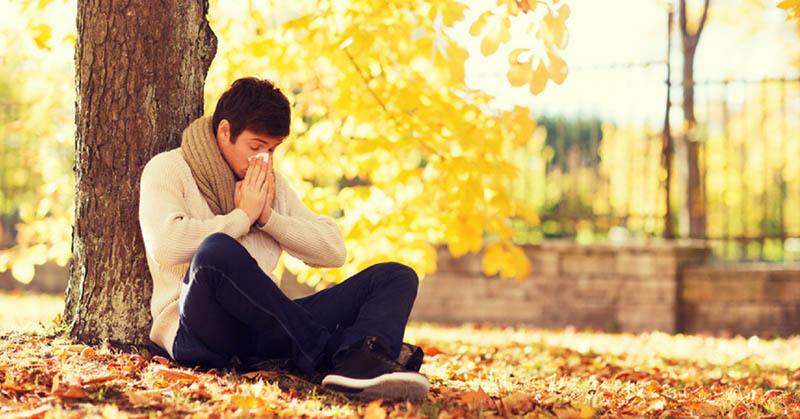
Despite the fact that many people consider springtime to be the worst for allergies, the fall season produces allergies that affects people just as badly.
In some cases, those who suffer from hay fever have allergies that are worse in fall than they are during the summer. In Houston, pollen levels are capable of being elevated throughout most of the year, resulting in a fall allergy climax.
Causes of Fall Allergies
Similar to spring, the majority of allergies that take place during the fall season have to do with plants and flowers releasing pollen into the atmosphere. The majority of people, up to three-fourths, of those who suffer due to spring pollen are also susceptible to the pollen produced by plants during fall.
During autumn, the main culprit is ragweed, which sends offensive pollen into the air before winter begins. This activity is spurred when weather patterns shift to cool nights and warm days, which helps foster their release. An unexpected source of this type of allergen are foods such as bananas and zucchini, which, along with a few other fruits and veggies, also trigger allergic reactions.
Mold is another culprit that causes people to experience allergies during fall. Spores found in wet, damp places, such as a pile of raked leaves, travel long distances in order to spread, travelling up into your nose and throat, triggering fits of sneezing and other strong allergic reactions.
Another unexpected source of fall allergies is the dust mite, which typically grow during the summer, but can be spread through HVAC systems turned on to provide heating as the temperature drops.
Stopping Fall Allergies
Antihistamines are a popular method of reducing the effects of fall allergies. This type of medication should be used just before the season starts, in order to prepare your body and immune system for the onslaught of allergens.
For those with the most severe symptoms, engaging in immunotherapy can greatly help boost your body’s defenses against the allergic response.
In addition to these therapies, reducing the amount of allergens in your home is a great way of giving yourself a break from symptoms. Washing all sheets, pillowcases and other fabrics that you make contact with gets rid of mites, spores and pollen. Adding a HEPA filter to your air system catches the majority of small particulate matter that makes their way into your respiratory tract.
Get the Help You Need
Finding an allergy doctor isn’t as hard as you think and once you find one, you’ll not only have peace of mind, but you’ll be able to get back to feeling normal again.
If you’re experiencing any allergy symptoms, let us help you find relief. Book an assessment with Houston Sinus & Allergy today!

